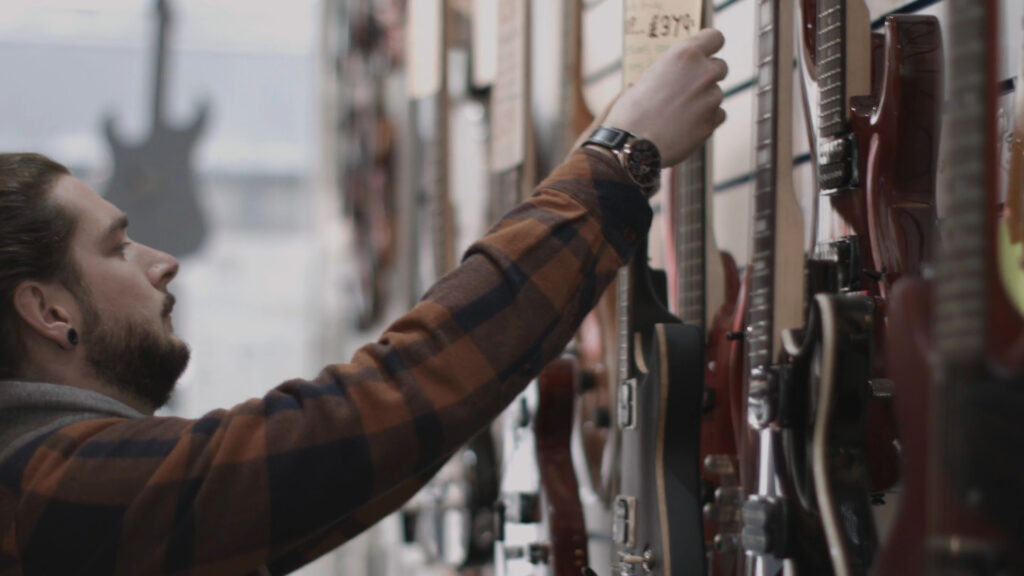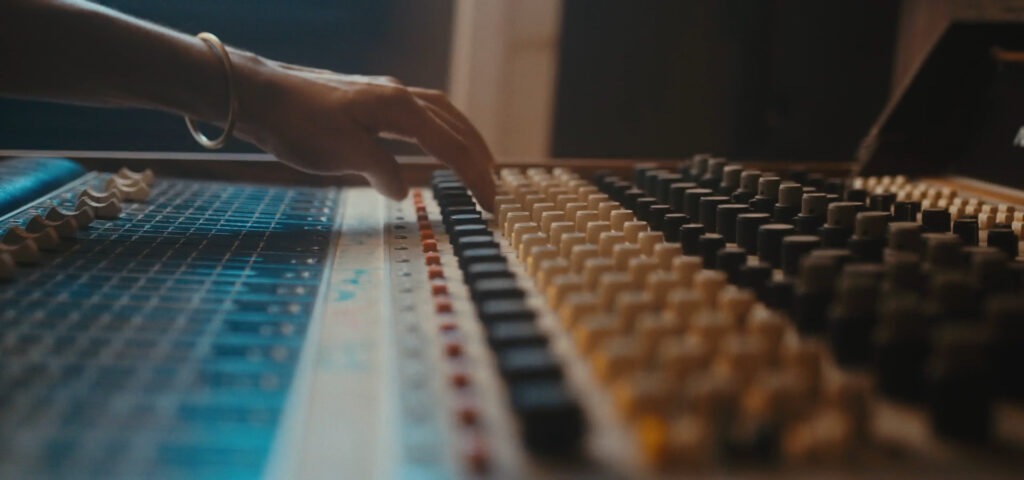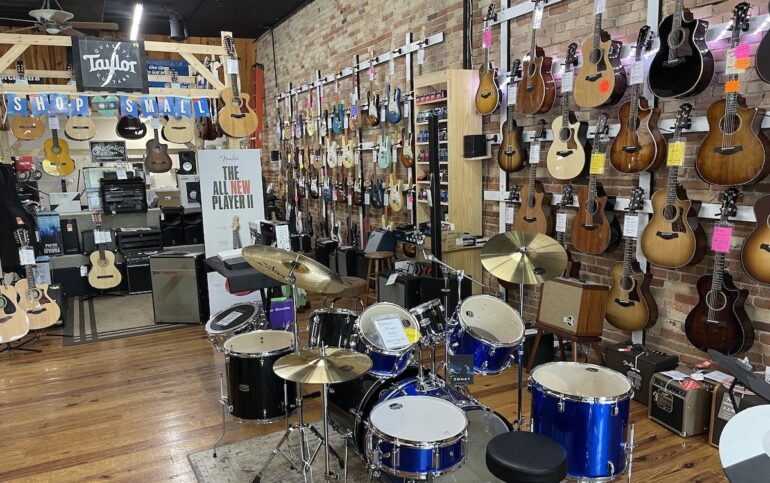Walk into a used record store or an old-school guitar shop and there’s a distinct smell in the air. Vinyl, wood polish, maybe a little dust. More than anything, though, there’s history. Posters from past tours. Faded photos of local gigs. That beat-up Telecaster that’s been on the wall since ’92. For years, these places were the frontlines of music culture. But now, many of them are barely hanging on.
It’s not a new story, streaming hurt physical sales, Amazon hurt independent retail, and COVID pushed a lot of small businesses over the edge. But there’s a deeper shift happening in the music economy that isn’t just about convenience or disruption. It’s about culture, access, and identity.
Guitar Shops and the Gear Wall Dream

Guitar shops used to be a rite of passage. You’d walk in as a teenager with calloused fingertips and wide eyes, dreaming of a Strat or Les Paul hanging just out of reach. The staff might ignore you, or they might hand you a cable and nod toward the amp. Either way, it was part of learning the ropes.
But in many cities, those shops are disappearing. Rising rents, tighter margins, and the dominance of online gear sales have made it hard for brick-and-mortar stores to compete. Sites like Reverb and Sweetwater offer massive selection and home delivery, but they lack that hands-on experience. You can’t test out 10 pedals with a buddy or argue with the shop tech about vintage pickups over a cup of bad coffee.
Still, some shops are adapting. A few are leaning into boutique gear, pedal mods, and custom builds. Others are becoming community hubs, offering lessons, open mic nights, or repair workshops. It’s no longer just about selling gear. It’s about selling a reason to show up.
The Survival of the Record Store
Used record stores, on the other hand, have had a quieter comeback. Thanks to the vinyl revival, some indie shops are doing better than they were ten years ago. But it’s a fragile success. Vinyl sales have grown, but they’re still a niche compared to streaming. And while big box stores now stock new pressings, they often lack the used bins and local knowledge that make indie shops special.
Record stores that survive tend to do so because they offer more than product. They offer context. Staff who know which pressing sounds better. Events that bring in collectors, DJs, and first-time buyers. That slightly chaotic energy of flipping through crates and finding a gem you didn’t even know you were looking for.
Still, the pressure is there. Discogs and eBay have pulled a lot of the high-end collector market online. Rising shipping and packaging costs cut into already-thin margins. And competition for storefront space, especially in gentrifying neighborhoods, makes it hard to keep the doors open.
The Studio Dilemma

Recording studios are another piece of the puzzle. In the past, local studios were often where bands cut their teeth. You’d save up, book a weekend, and track your EP with someone who knew the room inside out. It wasn’t just about the gear, though there was usually a beautiful old board or tape machine involved, it was about mentorship and experience.
But with the rise of home recording, that model’s shifted. Affordable interfaces, plugins, and DAWs have turned bedrooms into studios. That’s opened up access, which is great. But it’s also hollowed out the middle tier. High-end studios still exist for major acts, and hobbyists are thriving at home, but many local studios are struggling to stay afloat.
Some have pivoted to content creation, podcasts, voiceover work, live streaming. Others rent out rehearsal space or host workshops. Like music stores, they survive by being more than one thing. By offering something you can’t download or DIY.
Teaching the Next Generation

Music lessons have also had to evolve. The old model, private lessons in the back room of a store or someone’s house, still exists, but it’s increasingly supplemented (or replaced) by online instruction. Platforms like YouTube, Fender Play, and Skillshare have made it easier than ever to learn an instrument from your bedroom.
That’s not necessarily a bad thing. In fact, it’s opened up music education to people who might never have had access before. But it does change the role of the local teacher. The best instructors today aren’t just skilled players, they’re mentors, community builders, and often content creators themselves. They build loyalty not just through skill, but through connection.
Many teachers now run hybrid setups, teaching both online and in-person, often with custom video content or student groups on Discord and Zoom. It’s less about rigid curriculums and more about meeting students where they are. The result? A new kind of music teacher who blends tradition with tech and keeps the joy of learning alive in a changing world.
What This All Means for Music Culture
Local music businesses have always been more than just shops and services. They’ve been meeting points. Learning grounds. Places where kids find their first bandmates, where crate diggers swap stories, where gearheads argue about tone.
When these places disappear, something intangible goes with them. It’s not just about economics, it’s about memory. Community. Discovery.
That said, it’s not all doom and gloom. Many small businesses are finding creative ways to stay alive. They’re hosting events, building loyal followings, leaning into niche knowledge. They’re doing what they’ve always done, just with fewer resources and more hustle.
As the team at Reputation Galaxy puts it, “Reviews and reputation matter more than most people think. For small music shops and studios, it’s incredibly hard to thrive without credibility and community trust. A five-star review isn’t just a nice comment, it can be the difference between surviving and shuttering.”
So if there’s a guitar store, record shop, studio, or teacher in your area, go. Even if you don’t need anything today. Because these places won’t survive on nostalgia. They survive when we show up.
And who knows? You might find a fuzz pedal you didn’t know you needed.
- Noel Gallagher Biography – The Songwriter Who Defined Britpop - December 11, 2025
- Grimes’ “Artificial Angels” Signals New Era of AI-Hybrid Music Production - December 5, 2025
- Jennifer Tilly Then and Now – How Hollywood’s Most Unpredictable Star Kept Winning - November 12, 2025



